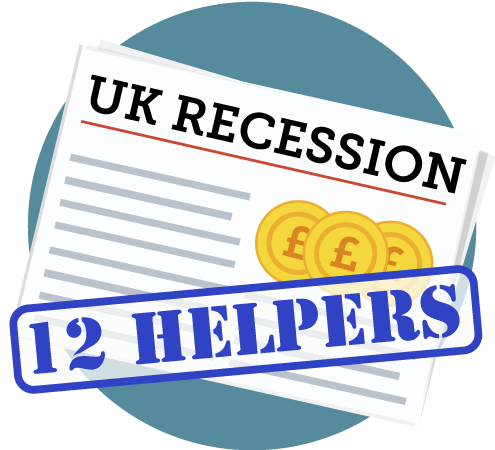|
| - | - | - | - | - |
|
|
|
|---|
| DON'T believe the fake 'Martin Lewis' or 'MSE' ads |
| 'I shifted debt to 18mths 0% with NO FEE. Cheers for the tip Martin' We've long told you that a key weapon to slash debt costs is a balance transfer card, and clearly it's cheapest with no transfer fee. So this week we're highlighting cards with no (or low) fees to help you save, as Ian did: "Took Martin's tip on Santander's no-fee card. Got accepted and dumped balance on it. I'll have it paid IN FULL in 18mths. Cheers." With a balance transfer you get a new card to pay off other credit or store cards, so you owe it instead, but at 0% interest, so more repayments clear the actual debt. For each £1k of debt at typical 20% interest, you save £200/yr at 0%. Two key points to start... - Don't just apply. FIRST find which cards you're most likely to get - it's more important than ever with acceptance criteria toughening in the current crisis. To help, our Balance Transfer Eligibility Calc shows your acceptance odds, helping you minimise applications and protect your credit score.
a) Never miss the min monthly repayment, or you could lose the 0% deal and it'll cost far more. | |||||||||||||||||||||||||||||||||
| New. 10 Boots tips incl 'up to 75% off' clearance now on, hidden beauty dupes & possible free £3.50 meal deal. MSE Becky brings you a Boots bargains bonanza. France, Spain etc travel chaos - your refund, insurance & quarantine rights. 100,000s have had plans disrupted after the Govt extended travel restrictions. See France help, Spain help or general travel help. Hurry. New cheapest 1yr energy fix from Shell, but it won't last long - save £250+/yr. MSE Blagged. The Shell Energy Sept 2021 v4 tariff is the market's cheapest 1yr fix on average, as it includes the usual £25 MSE dual-fuel cashback and £20 bill credit we've sorted for you. Plus it comes with 100% renewable elec. For new AND existing dual-fuel and elec-only custs, the tariff only launched this week, but Shell warns it may be around for just a few days. As prices vary by your use and region, the links go via our energy club to compare it against other fixes. You can play with the filters too, to find slightly cheaper variable rates from tiddlers. Nando's free delivery trick this Thu-Sun only + 9 more cheeky hacks. See our 10 Nando's tips. Ends Mon. Cheapest fibre broadband & line we've seen in three years - '£14.99/mth'. MSE Blagged. This 35Mb-speed deal for Shell Energy newbies is £24.99/mth but you get an AUTO £120 bill credit within 3mths. So it's a total £179.88 outlay over the 1yr contract, equiv to £14.99/mth. See our Broadband comparison tool for more deals. 250,000+ water-saving FREEBIES, eg, shower head & garden hose nozzle. Great for anyone using extra water while at home more, or to help manage supplies in summer, but what's available depends on your provider. Water-savers |
|
|
|---|
| There's been a big rise in drivers returning to the roads as lots of lockdown restrictions have eased, which has led to a 160% jump in roadside recoveries in Jul compared to May, according to insurer NFU Mutual. Yet it's likely many who stopped driving during the early part of the crisis didn't renew their policy if it expired, so if you're back in your motor, now is a key time to check if you're covered. Whether you need a new policy or are overpaying on an existing one, here's how to cut costs...
|
| TWO pairs of designer specs from £25, incl Timberland & Karl Lagerfeld. MSE Blagged. Not the really high-end brands, but big names nonetheless. Incl free deliv. Glasses Direct 'Free' £2ish Lindt chocolate, £2ish McVitie's biscuits & £1ish Allinson's bread etc. MSE Blagged. Via cashback app, works in store and online. Free choc and more Top student bank accounts 2020/21, incl up to £3,000 0% overdrafts, 4yr railcard etc. It's been a turbulent time for many prospective students amid A-level results chaos, but if you're off to uni (or know someone who is), our updated guide has this year's top student accounts. Eat Out to Help Out interactive map - a new way to see which restaurants give 50% off in Aug. Yet it still misses a few out - so combine this with the Govt postcode checker and other lists. See all Eat Out finders. £18 Nails Inc face, hands & feet pamper set (norm £27ish). MSE Blagged. Incl four fun facial sheet masks with prints of a cat, unicorn etc, one hand mask and one foot mask. 1,800 sets. Nails Inc masks |
| AT A GLANCE BEST BUYS
|
| SUCCESS OF THE WEEK: Want an MSE Charity grant of up to £7,500? Non-profit organisations can apply for a cash boost in our charity's latest grant-giving round, themed on 'building and developing resilience'. If you're interested, your group's project should be focused on building financial life skills, to support people recovering from the impact of the pandemic, and equip them to move forward. You can check if your project is eligible and apply via its website. The round opens at 9am on Tue 1 Sep and closes once the charity accepts 40 applications, or on Fri 25 Sep, whichever comes first. |
| CAMPAIGN OF THE WEEK Shop at Tesco? Help vulnerable coronavirus-hit families get food on the table. Food redistribution charity FareShare has tripled the amount of food it sends to other frontline charities since the start of lockdown. To meet this increased need, it's collecting food in most Tesco stores from Thu 20 to Sat 22 Aug. There'll be info on what items are most needed in-store - to find your nearest participating shop, and for more details, see the FareShare website. |
| THIS WEEK'S POLL How do you rate your broadband provider? We can tell you which are the cheapest broadband providers, but to keep our customer service ratings updated, we need your help. How do you rate your broadband provider? 'Eat Out to Help Out' scheme goes down a treat with MoneySavers. Last week, we asked whether you've used the Govt's August meals-out discount. 12,500 people responded, and two-thirds said they've already used it at least once - with 94% of those planning to use it again. Casual dining restaurants were most popular, with the likes of Nando's and Carluccio's accounting for 33% of discounts. Pubs made up 31%, cafés 18% and fine dining 10%, while just 9% of discounts were on fast food. See full dining discount poll results. |
| MONEY MORAL DILEMMA Should I return the refund I got for 'dead' plants I revived? I ordered plants online from a small company during lockdown and they arrived two weeks late looking pretty dead, so I asked for a refund and got it. I put the plants in the garden anyway, in the hope I might revive them - and now they're thriving. Should I contact the company and offer to return the refund? Enter the Money Moral Maze: Should I return refund for 'dead' plants? | Suggest an MMD | View past MMDs |
|
| |
|---|
| MSE TEAM APPEARANCES (SUBJECTS TBC) Thu 20 Aug - BBC Radio London, Early Breakfast with Jason Rosam, from 6.40am, Guy Anker |
| CASH IS STILL KING FOR SOME MONEYSAVERS That's all for this week, but before we go... a recent survey revealed cash still plays an important role for 70% of people, and it appears MoneySavers share the sentiment. From using cash to tip for good service, spending it in charity shops and takeaways, through to using it to pay the window cleaner or gardener, you've been sharing why it's still key for you. And many thrifty MSE'rs told us having cold hard cash helps keep their spending under control, as it's all too easy to get carried away on a contactless card. Let us know if cash is still a big thing for you in our Facebook post. We hope you save some money, stay safe, |
Important. Please read how MoneySavingExpert.com worksWe think it's important you understand the strengths and limitations of this email and the site. We're a journalistic website, and aim to provide the best MoneySaving guides, tips, tools and techniques - but can't promise to be perfect, so do note you use the information at your own risk and we can't accept liability if things go wrong. What you need to know This info does not constitute financial advice, always do your own research on top to ensure it's right for your specific circumstances - and remember we focus on rates not service. We don't as a general policy investigate the solvency of companies mentioned, how likely they are to go bust, but there is a risk any company can struggle and it's rarely made public until it's too late (see the Section 75 guide for protection tips). We often link to other websites, but can't be responsible for their content. Always remember anyone can post on the MSE forums, so it can be very different from our opinion. Please read the Full Terms & Conditions, Privacy Policy, How This Site is Financed and Editorial Code. Martin Lewis is a registered trade mark belonging to Martin S Lewis. More about MoneySavingExpert and Martin Lewis What is MoneySavingExpert.com? Who is Martin Lewis? What do the links with an * mean?Any links with an * by them are affiliated, which means get a product via this link and a contribution may be made to MoneySavingExpert.com, which helps it stay free to use. You shouldn't notice any difference; the links don't impact the products at all and the editorial line (the things we write) isn't changed due to them. If it isn't possible to get an affiliate link for the best product, it's still included in the same way. More info: See How This Site is Financed. As we believe transparency is important, we're including the following 'un-affiliated' web-addresses for content too: Unaffiliated web-addresses for links in this email santander.co.uk, natwest.com, rbs.co.uk, virginmoney.com, autoaidbreakdown.co.uk, moneysupermarket.com, confused.com, comparethemarket.com, gocompare.com, tescobank.com, cahoot.com, tsb.co.uk Financial Conduct Authority (FCA) Note MoneySupermarket.com Financial Group Limited is authorised and regulated by the Financial Conduct Authority (FRN: 303190). MoneySavingExpert.com Ltd is a company registered in England and Wales. Company Registration Number: 8021764. Registered office: One Dean Street, London, W1D 3RB. MoneySavingExpert.com Limited is an appointed representative of MoneySupermarket.com Financial Group Limited. To change your email or stop receiving the weekly tips (unsubscribe): Go to: www.moneysavingexpert.com/tips. |









